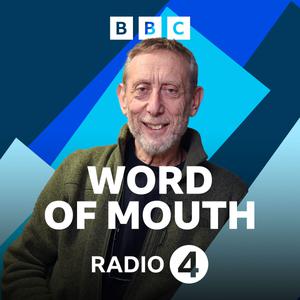
Word of Mouth
BBC
Series exploring the world of words and the ways in which we use them
- 27 minutes 29 secondsJackie Kay on the Scots language
Poet Jackie Kay has written a book in Scots: Coorie Doon: A Scottish Lullaby Story. She joins presenter Michael Rosen to talk about her love of the language and what it meant to her growing up. Produced for BBC Audio Bristol by Beth O'Dea. Subscribe to the Word of Mouth podcast and never miss an episode: https://www.bbc.co.uk/sounds/brand/b006qtnz
23 January 2025, 3:30 pm - 27 minutes 56 secondsThe Language of Genetics
Adam Rutherford joins Michael Rosen to make sense of the heavily-loaded and often unscientific language that we use to talk about genetics, inheritance, ancestry and race. Adam is a geneticist, science writer, and lecturer in Biology and Society at University College London. His work tries to make sense of what our genes do (or don't) tell us about our similarities and our differences. He writes about this stuff in many of his books, including ‘How To Argue With A Racist’ and ‘Where Are You Really From?’
Subscribe to the Word of Mouth podcast and never miss an episode: https://www.bbc.co.uk/sounds/brand/b006qtnz
Produced for BBC Audio Bristol by Becky Ripley
16 January 2025, 3:30 pm - 27 minutes 55 secondsSusie Dent's World of Words
Susie Dent joins Michael Rosen to talk about her lifelong fascination with words and their origins. It's a programme bringing some apricity, which is one of Susie's favourite words. Her love of language began when she was a child, then found expression in her passion for French and German and now in her work as a lexicographer, writer and language broadcaster.
Produced for BBC Audio Bristol by Beth O'Dea. Subscribe to the Word of Mouth podcast and never miss an episode: https://www.bbc.co.uk/sounds/brand/b006qtnz
9 January 2025, 3:30 pm - 27 minutes 59 secondsSocial media language
Michael talks to linguist Dr Andreea Calude about her research into how language is used on Facebook, TikTok, YouTube, LinkedIn and Twitter/X. And he asks if we're witnessing the death of email.
Dr Andreea Calude is the author of The Linguistics of Social Media: An Introduction.
Produced for BBC Audio Bristol by Beth O'Dea. Subscribe to the Word of Mouth podcast and never miss an episode: https://www.bbc.co.uk/sounds/brand/b006qtnz Read less
3 October 2024, 2:32 pm - 27 minutes 39 secondsHow Animals Talk
Michael hears from zoologist Arik Kershenbaum about the latest research on how and why different types of animals communicate, from wolves howling to dolphins whistling: a world of soundscapes. He also explains how animal communication can help to shed light on the human variety.
Dr. Arik Kershenbaum is a zoologist and the author of: Why Animals Talk: The New Science of Animal Communication.
Produced for BBC Audio Bristol by Beth O'Dea. Subscribe to the Word of Mouth podcast and never miss an episode: https://www.bbc.co.uk/sounds/brand/b006qtnz
26 September 2024, 2:31 pm - 27 minutes 44 secondsA Poet Writing in Three Languages
How best to write about love and other things. Nabeela Ahmed talks about writing in a second language and how her early life in Kashmir shaped the language she uses to express different aspects of her life. She is also a champion for the Pahari language in her home city of Bradford. Pahari is a language spoken by people in Northern areas of India, Kashmir and Pakistant. It fell out of favour as an official language of the courts but is still widely spoken in many British Asian homes today. Nabeela works with groups of budding poets and writers to help them express themselves in whichever language they feel comfortable with alongside English.
Producer: Maggie Ayre
22 September 2024, 9:56 pm - 27 minutes 37 secondsFine Distinctions
Eli Burnstein talks about fine distinctions between words, including Michael's personal bugbear of forewords, prefaces and introductions, some clarity on clementines, satsumas, tangerines and mandarins, and of course the lunch, dinner and tea debate.
Produced for BBC Audio Bristol by Sally Heaven. Subscribe to the Word of Mouth podcast and never miss an episode: https://www.bbc.co.uk/sounds/brand/b006qtnz
12 September 2024, 3:00 pm - 27 minutes 46 secondsFormer astronaut Col. Chris Hadfield on the language of Space exploration
Colonel Chris Hadfield is a veteran of three spaceflights. He crewed the US space shuttle twice, piloted the Russian Soyuz, helped build space station Mir and served as Commander of the International Space Station. Getting words and language right in as clear and a concise way is a matter of life and death for astronauts. Crews are traditionally made up of different nationalities and Russian is second to English on board. Chris Hadfield who flew several missions and captained the International Space Station talks about how astronauts communicate and the special language they use that he dubs NASA speak. He speaks several languages and lived in Russia for twenty years. As an author he has written several novels based on his experience in Space and as a fighter pilot the latest of which is The Defector. His books The Apollo Murders are being made into a series for TV. He tells Michael about the obligation he feels to share in words as best he can an experience that so few people have - of being in space and seeing Earth from afar.
Producer: Maggie Ayre
5 September 2024, 3:10 pm - 27 minutes 43 secondsThe words we use about getting older and why they matter
How we talk about getting older can affect how we age, both mentally and physically. Michael asks Dr Lucy Pollock for her advice on ageing well and happily.
Dr Lucy Pollock has been an NHS consultant geriatrician, a doctor specialising in the care of older people, for over 30 years. She is the author of The Book About Getting Older, and her new book is The Golden Rule: lessons in living from a doctor of ageing.
Produced for BBC Audio Bristol by Beth O'Dea. Subscribe to the Word of Mouth podcast and never miss an episode: https://www.bbc.co.uk/sounds/brand/b006qtnz
29 August 2024, 2:30 pm - 27 minutes 46 secondsHow babies learn language
Recently a video went viral of a baby talking - or babbling - with a Liverpool accent. Professor Julian Pine from Liverpool University explains how babies and young children learn language, including the rules we take for granted. Including the surprising reasons who children make mistakes like saying "nana" instead of banana, or "I play football yesterday" instead of "I played football yesterday." Plus, did you know verbs and nouns go to different parts of the brain?
Produced for BBC Audio in Bristol by Sally Heaven Subscribe to the Word of Mouth podcast and never miss an episode: https://www.bbc.co.uk/sounds/brand/b006qtnz
22 August 2024, 3:00 pm - 28 minutes 3 secondsLittle Green Men: the secret rules of word order
Michael explores the mysterious rules of word order with linguist Dr Laura Bailey. We all know them instinctively, without knowing that we know them. Contains the truth about killer whales and also why Yoda sounds like an alien.
Produced for BBC Audio Bristol by Beth O'Dea.
13 June 2024, 3:00 pm - More Episodes? Get the App
Your feedback is valuable to us. Should you encounter any bugs, glitches, lack of functionality or other problems, please email us on [email protected] or join Moon.FM Telegram Group where you can talk directly to the dev team who are happy to answer any queries.
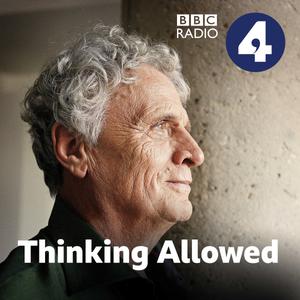 Thinking Allowed
Thinking Allowed
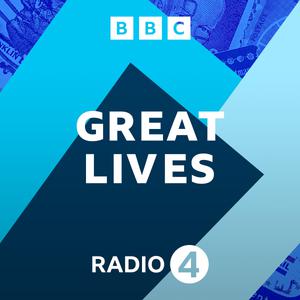 Great Lives
Great Lives
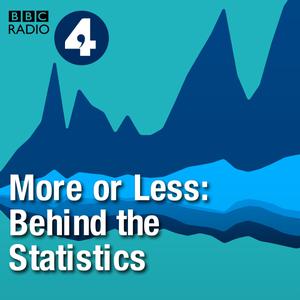 More or Less: Behind the Stats
More or Less: Behind the Stats
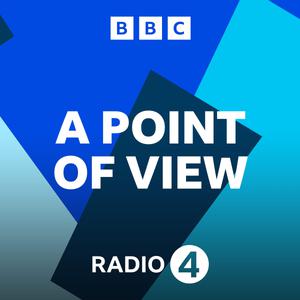 A Point of View
A Point of View
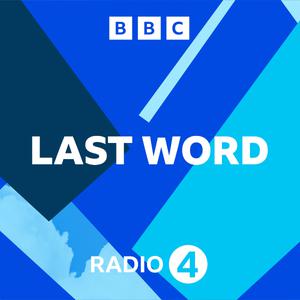 Last Word
Last Word
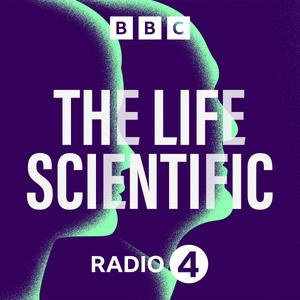 The Life Scientific
The Life Scientific